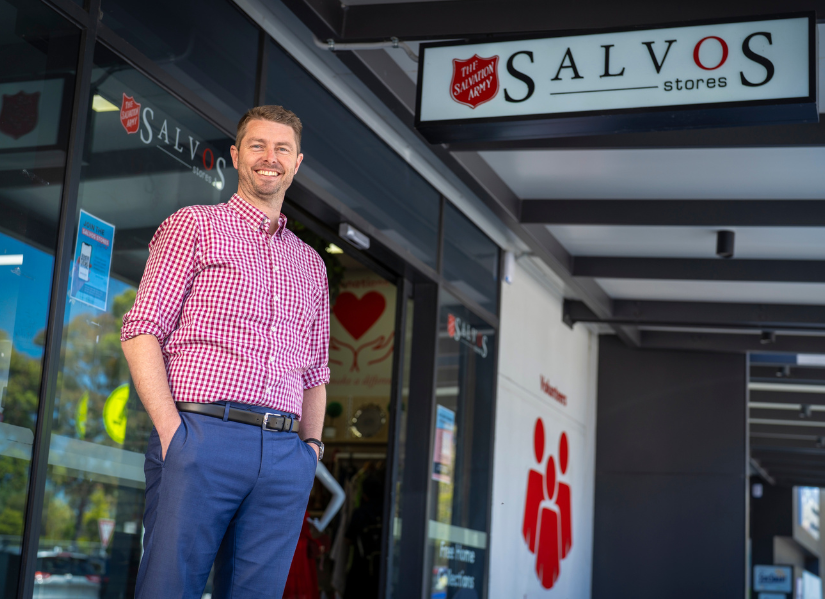
Charlotte McCullough, 1 May, 2024
Matt Davis is the CEO of Salvos Stores, former Chair of Charitable Recycling Australia, Non-executive Director of Seamless and a QUT alumnus. In this article, Matt challenges us to reimagine our approach to consumption and resource management. In a world where our finite resources are becoming endangered and the need for sustainable solutions is pressing, he urges us to adopt the circular economy model and presents a compelling case for innovation and collaboration. As Salvos Stores spearhead initiatives that bridge the gap between charity, community, sustainability, and commerce, the organisation is inspiring a future where materials are repurposed to remain in use for longer. Matt writes:
Inspiring a model of circular thinking
In 2005, Dame Ellen MacArthur became the fastest solo sailor to sail around the world. It was this 71-day voyage that gave her a profound understanding of the word ‘finite’ - to imagine a world where the only resources available are the resources we already have in use. In Ellen’s case, there on that boat, her very survival was reliant on ensuring those resources continued in use for the entirety of her journey. This insight led her to create the Ellen MacArthur Foundation; she is now a global thought leader on the circular economy and an inspiration to thousands of others around the world who have taken up the challenge of transitioning our traditional ‘linear’ model of take, make and dispose to one where materials remain in use and nature is regenerated in the process.
Salvos Stores' legacy of sustainable social impact
The Salvation Army has been operating resource recovery activities to power its mission to alleviate hardship and injustice in Australia since the late 1890s. In that time it has taken many different forms. Originally starting out as a furniture repair and toy making service to teach new skills and help reintegrate prisoners into the community, the model evolved into what affectionately became known as ‘op-shops’. For decades, op-shops were a place of social taboo, there as an unspoken but indispensable and affordable solution for the most vulnerable. The combined effect of rapidly rising consumer demand and conscious consumption has created what is now a thriving network of 400 Salvos Stores, helping to raise vital funds for programs addressing family violence, homelessness, rehabilitation and emergency relief. Beyond Salvos Stores, Australia’s network of re-use and recycling centres now spans over 3,000 sites, involves more than 30,000 volunteers and diverts over one million tonnes of household items from landfill every year. Perhaps most surprisingly, research now confirms that 95% of shoppers at Salvos Stores can afford to buy new but choose not to, out of a motivation to make more sustainable choices.

Historic photo of an early Salvos Store
The emergence of new partnerships
It is against this backdrop that Australia’s circular economy is starting to emerge. We are seeing new solutions take shape based on collaboration across sectors that have traditionally been very separate. For Salvos Stores this has included launching a new partnership with RCYCL – offering return satchels across multiple Australian retailers for both ‘wearable’ and ‘unwearable’ clothing. Salvos Stores has also been privileged to work alongside QUT teams in design, industry engagement and the Advanced Robotics for Manufacturing (ARM) Hub in tackling the particular challenge of re-valuing unwearable textiles within our domestic markets. It is only through collaboration that we will be able to share the challenges, ideas, risks and benefits capable of making the transition to circularity. By framing what we do today as finite, we force ourselves to explore what is possible and from that, create the sustainable future we all want to see.

Salvos Stores regularly engage with corporate partners on re-use and recycling initiatives
Matt Davis
QUT degree - Bachelor of Business (1998)
Have a question for Matt? Connect with him on LinkedIn.
